4 tricks to improve your guitar solos
Simple ways to enter new territory with your playing
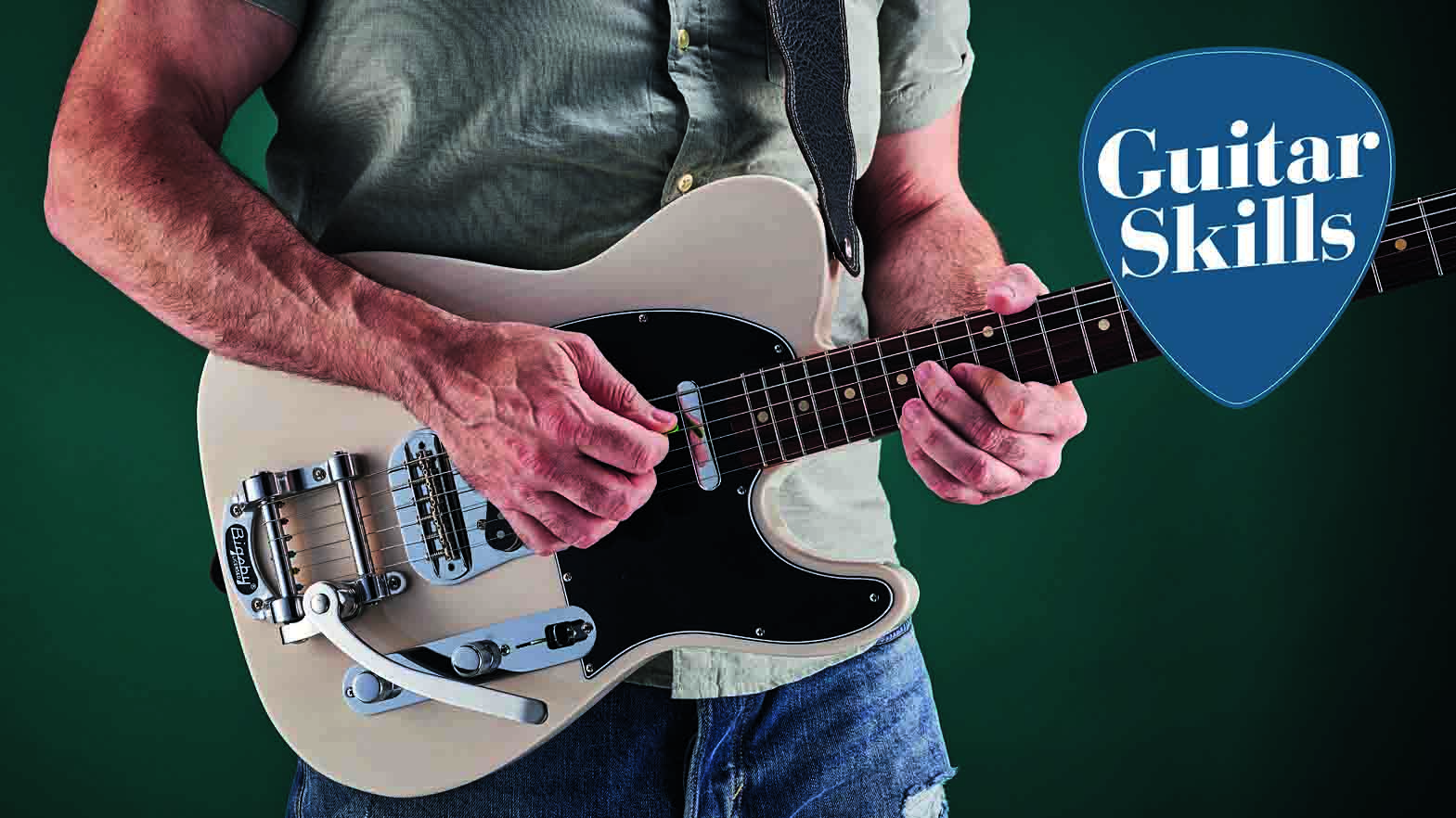
Want all the hottest music and gear news, reviews, deals, features and more, direct to your inbox? Sign up here.
You are now subscribed
Your newsletter sign-up was successful
Guitar lessons: Be honest with yourself, how often do you start a solo with a stock pre-prepared lick? Let’s face it, we all do it sometimes. Well, why not make use of those familiar, well-practised licks because 90% of the time there’s more mileage in them than you might realise.
A few simple tricks can take you into new musical territory, all whilst retaining some of the themes of your original lick. Here, we’re looking at ways to develop a lick. Each time you practise, play our first ‘basic’ lick for a minute or two, then try one other example. Each one is based on our first lick but also takes it somewhere new. Try applying this idea in your own solos.
Start with this basic blues-rock lick
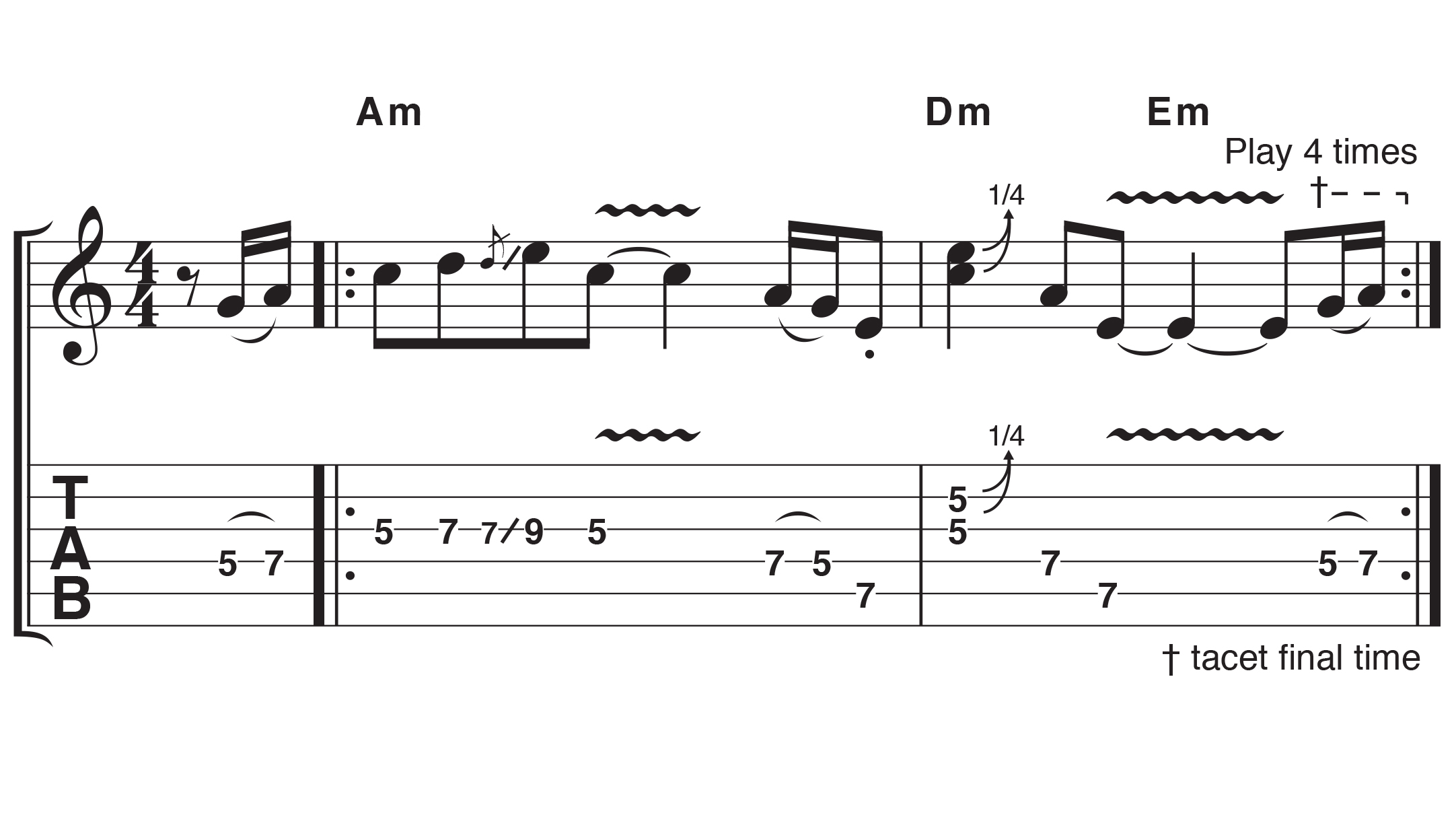
This is our basic lick. We’re using the A minor pentatonic scale and employing some simple phrasing that should be fairly easy to remember.
1. Try changing minor to major
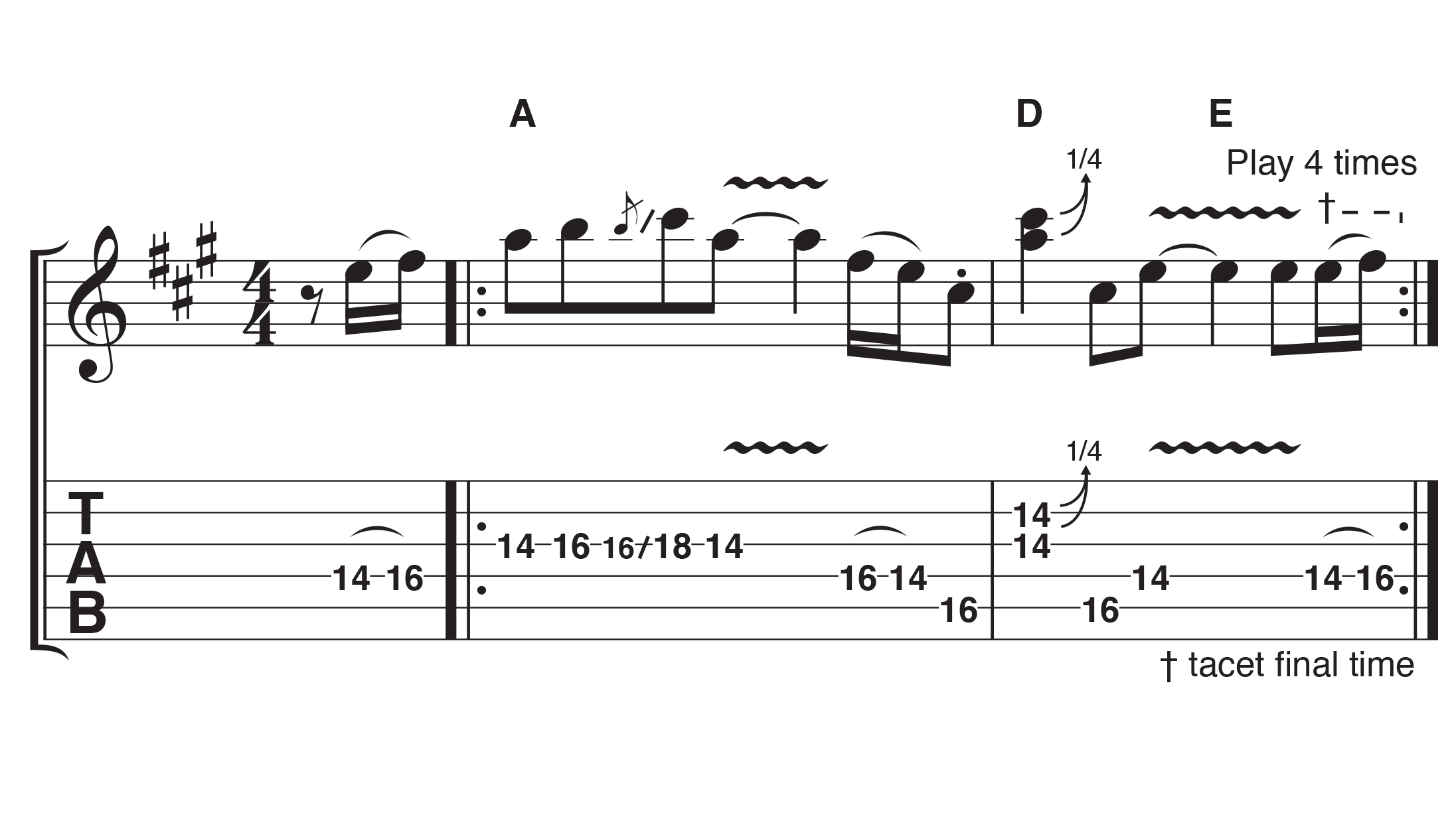
Move the basic lick up nine frets (or down five frets) to 14th position and you’ll be in the major pentatonic scale instead of the minor version. it’s a trick employed by countless blues guitarists.
2. Add target notes
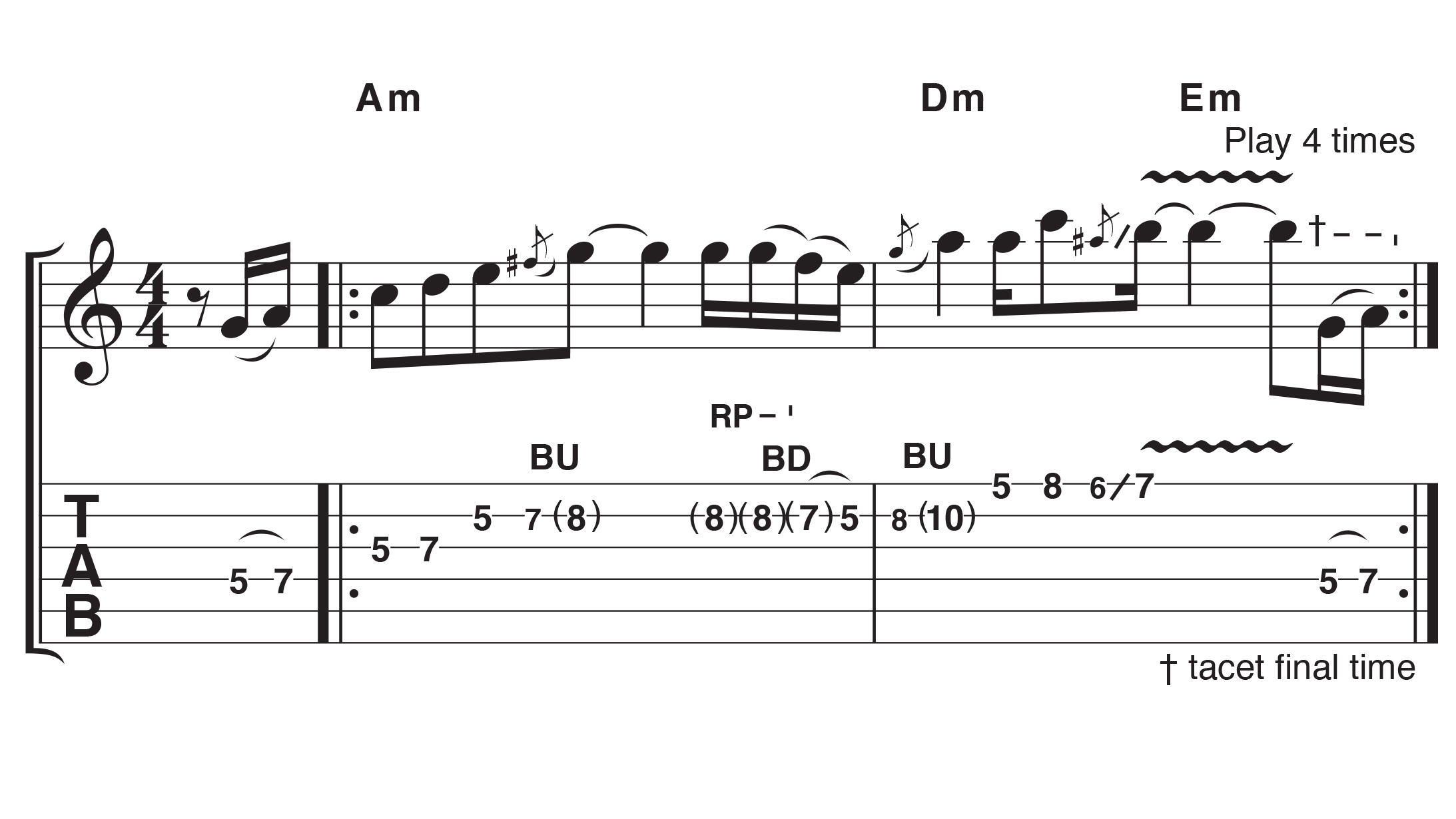
You don’t have to stick to pentatonics – using notes outside of familiar scales is a great way to add colour. here we’re adding F# and B notes, neither of which are in the A minor pentatonic scale.
3. Change the style – country
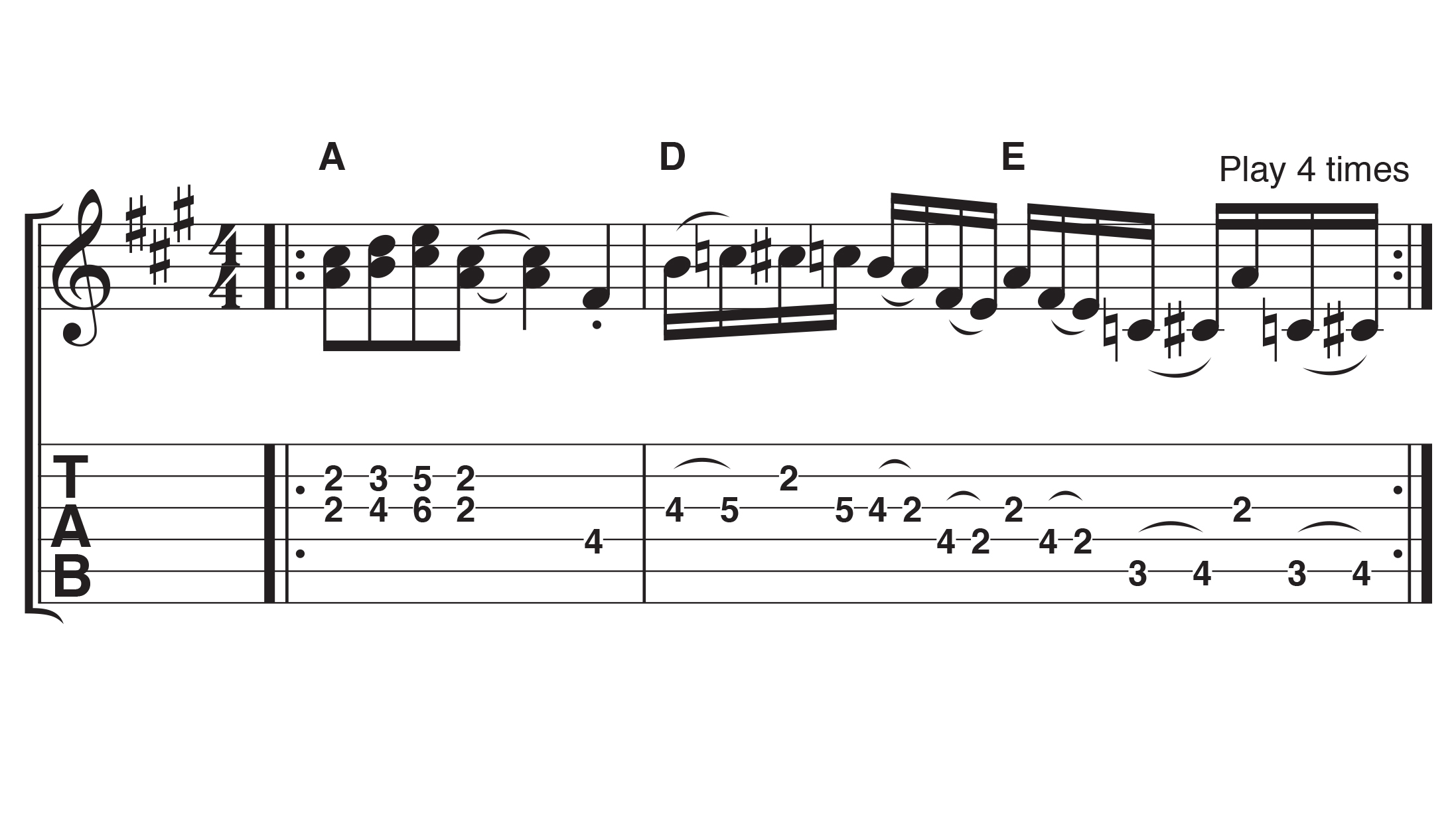
We’re a long way from our original lick here, but listen closely and you’ll hear those diads in bar 1 outlining the main melody line before opening up for a country style cliché at the end.
4. Change the style - jazz
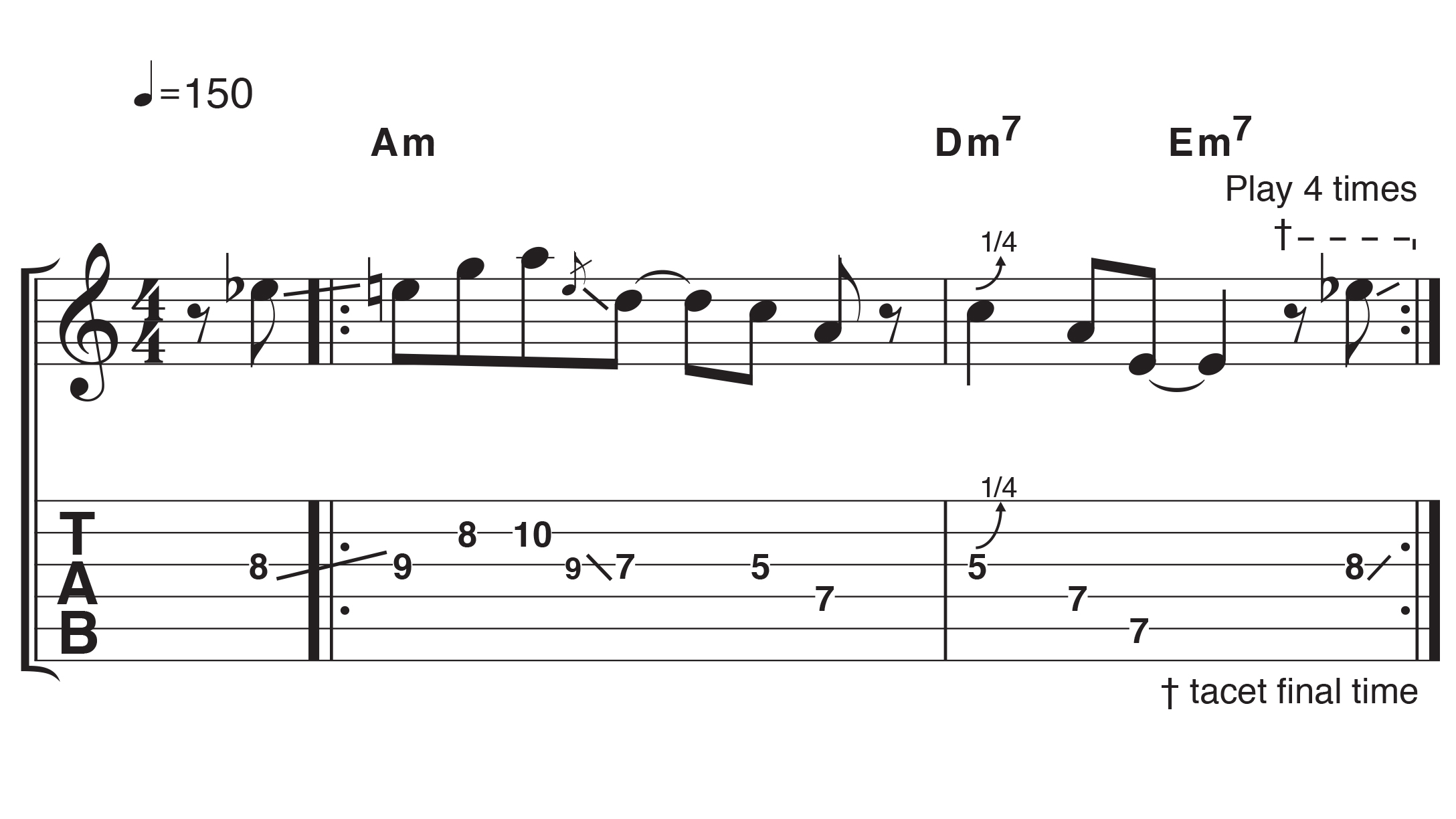
Selecting a neck pickup and playing with a swing feel, here we’ve produced a jazz version of our original lick. despite the swing feel and note changes, the phrasing should be familiar.
Want all the hottest music and gear news, reviews, deals, features and more, direct to your inbox? Sign up here.
Start improvising guitar solos with these 3 simple exercises
Total Guitar is Europe's best-selling guitar magazine.
Every month we feature interviews with the biggest names and hottest new acts in guitar land, plus Guest Lessons from the stars.
Finally, our Rocked & Rated section is the place to go for reviews, round-ups and help setting up your guitars and gear.
Subscribe: http://bit.ly/totalguitar
